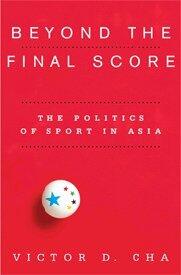The New Transatlantic Agenda
Ambassador Eliasson sets out the current status of Europe-US relations and acknowledges the wide range of daunting problems the world must face today. He emphasizes the need for an enhancement of the transatlantic relationship, as well as the need for multilateral cooperation. Mr. Eliasson also reinforces the importance of a continued awarenesss of the economy, the environment, and ethics.
Synopsis
Although unsure whether there will in fact be a new transatlantic agenda, Ambassador Eliasson repeatedly highlights that it is crucial that it does happen if we are to challenge the ‘huge’ issues of today. Mr. Eliasson notes the current financial climate and its possible effects on the social and political spheres as worrying. He also expresses particular concern at what he calls ‘fortress building,’ which involves protectionism and intolerance. Mr. Eliasson goes on to explain that as it stands, current US-Europe relations are dominated by mutual interest on security and the economy. However, to Mr. Eliasson, this relationship is marred by several issues. Inside the EU, democracy is in a predicament with politicians being accountable nationally while the issues are international. Moreover, Mr. Eliasson feels that the nature of the US and Europe relationship is not representative of the responsibility it should carry by being the most prosperous regions of the world.
How is this transatlantic relationship to move forward? If we are to arrive at what Mr. Eliasson describes as ‘scenario 1,’ which involves long term thinking, regulation, an emphasis on ethics, and a realization of interdependence in an internationally cooperative system, then Mr. Eliasson argues this requires reform. Mr. Eliasson argues it is urgent not to separate politics and economics. In dealing with a financial crisis, we must employ a multilateral approach and learn lessons for the future, particularly not fearing international regulation in a globalized economy. Mr. Eliasson also explains we can avoid this protectionist ‘fortress building’ by embracing ‘multipolarity.’ Mr. Eliasson underscores the importance of tolerance and good governance as central to progress. In addition, Mr. Eliasson reinforces that the problems of today are on such a massive scale that they must be dealt with internationally, as well as regionally and in the private sector.
Dealing with such issues, which involve collective engagement in Afghanistan and a cooperative approach in Africa, is what Mr. Eliasson believes must be added as a ‘third pillar’ to the US and Europe’s relationship. Mr. Eliasson also stresses concrete action on poverty by the US and Europe as central to this effort. In particular, he places emphasis a program for education of women and the establishment of clean water access. Mr. Eliasson believes that such efforts, which would add a pivotal ethical dimension to the transatlantic agenda, would enhance the reputation of democracy across the globe through concrete action.
In engaging with the audience in a question-and-answer session, one of the most emphasized subjects was diplomatic standards for international relations. Mr. Eliasson strongly reinforced the notion that the transatlantic agenda should stand with clear ethical standards. Other issues addressed included Iran's nuclear capabilities, religion, and the role of Russia.
About the Speaker
Ambassador Jan Eliasson was until July 1, 2008 Special Envoy of the United Nations Secretary-General for Darfur. Previously, Jan Eliasson was President of the 60th session of the United Nations General Assembly 2005-2006. He was Sweden’s Ambassador to the United States, 2000-2005. Mr. Eliasson was Minister for Foreign Affairs of Sweden in 2006.
Mr. Eliasson served from 1994 to 2000 as State Secretary for Foreign Affairs, a key position in formulating and implementing Swedish foreign policy. Earlier, 1988-1992, he was Sweden’s Ambassador to the United Nations in New York. During this period, he also served as the Secretary-General’s Personal Representative for Iran/Iraq.
In 1992, Mr. Eliasson was appointed the first United Nations Under-Secretary-General for Humanitarian Affairs and was involved in operations in Somalia, Sudan, Mozambique and the Balkans. He also took initiatives on landmines, conflict prevention and humanitarian action.
1980-1986, Mr. Eliasson was part of the UN mediation missions in the war between Iran and Iraq, headed by former Prime Minister Olof Palme. In 1993-94 Mr. Eliasson served as mediator in the Nagorno Karabakh conflict for the Organization for Security and Co-operation in Europe (OSCE). He has been Visiting Professor at Uppsala University and Göteborg University in Sweden, lecturing on mediation, conflict resolution and UN reform.
During his diplomatic career, Mr. Eliasson has been posted to New York (twice) Paris, Bonn, Washington (twice) and Harare, where he opened the first Swedish Embassy in 1980. He served as Diplomatic Adviser to the Swedish Prime Minister 1982-1983, and as Director General for Political Affairs in the Swedish Ministry for Foreign Affairs 1983-1987.
Mr. Eliasson has authored and co-authored numerous articles and books and is a frequent lecturer on foreign policy and diplomacy. He is recipient of honorary doctorate degrees from i. a. American University, Washington, D.C., Uppsala University and Göteborg University, Sweden. He has been decorated by a number of Governments.
He is the Chairman of the Anna Lindh Memorial Fund of Sweden and is Member of the Advisory Group to the International Committee of the Red Cross (ICRC), Geneva.
Born in Göteborg, Sweden, in 1940, Mr. Eliasson was an exchange student in the United States 1957-1958. He graduated from the Swedish Naval Academy in 1962 and earned a Master’s degree in Economics and Business Administration in 1965.
Oksenberg Conference Room





